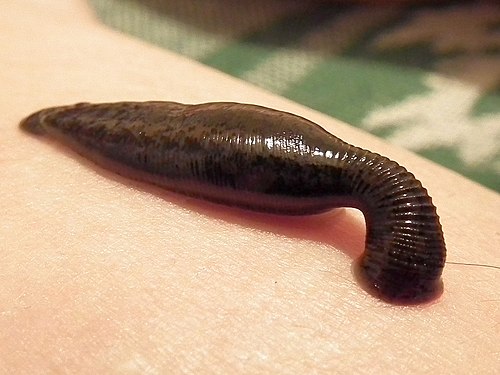Leech
 Leech.
Leech.Leeches are segmented parasitic or predatory worms of the subclass Hirudinea in the phylum Annelida. Like earthworms, they have soft, muscular, segmented bodies that can lengthen and contract, but the coelom, the body cavity that can be spacious in other annelids, is reduced to small channels, and they typically have suckers at both ends. Most leeches live in freshwater habitats, though some species can be found in terrestrial and marine environments. A minority of leech species prey on small invertebrates, but most are hematophagous, attaching themselves to a host with a sucker and feeding on blood. They were used in medicine from ancient times until the 19th century to draw blood from patients. In modern times, leeches have been used in microsurgery and in the treatment of extremity vein diseases and joint diseases such as epicondylitis and osteoarthritis. Hirudin, an anticoagulant drug they secrete, has been used to treat blood-clotting disorders.





